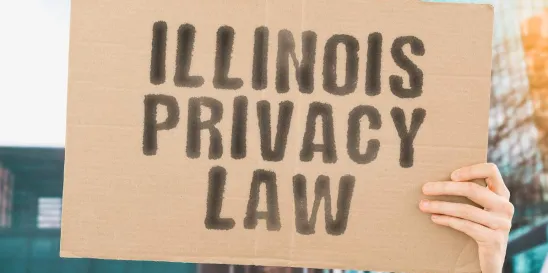On November 30, 2023, the Illinois Supreme Court unanimously held that an exclusion in the Illinois Biometric Information Privacy Act applies to healthcare workers where their biometric information is collected, used, or stored in the course of providing medical services. The holding is a significant victory for healthcare institutions and clarifies that the applicable exemption, Section 10 of BIPA, does not only apply to hospital patients, but also extends to other circumstances.
Plaintiffs were healthcare workers who used finger scanning authentication devices in the course of providing patient care, including for medication dispensing systems and to gain authorized access to patient materials and medications. They filed suit against their employer, a hospital, alleging violations of Sections 15(a), (b), and (d) of BIPA. The defendant hospital filed a motion to dismiss, arguing that the biometric data that it purportedly collected, used, and/or stored was used for internal purposes to restrict access to patients’ protected health information and medication. Additionally, the defendant also asserted that because the data at issue was used for health care treatment and operations, it was, therefore, specifically exempt under Section 10 of BIPA. This provision provides that “[b]iometric identifiers do not include information captured from a patient in a health care setting or information collected, used, or stored for health care treatment, payment, or operations under [HIPAA].”
In this case, an Illinois circuit court ruled that the exemption in Section 10 of BIPA was limited only to patient information. Defendant timely appealed that ruling.
On appeal, in a case of first impression, the Illinois Supreme Court held that healthcare workers’ use of biometric scanning devices fell within the scope of Section 10’s exemption by the plain language of the statute: “Pursuant to its plain language, [BIPA] excludes from its protections the biometric information of health care workers where that information is collected, used, or stored for health care treatment, payment, or operations, as those functions are defined by HIPAA.” As such, the Court ruled, using finger scanning devices to access patient medications and provide patient care fell within the scope of “information collected, used, or stored for health care treatment, payment, or operations.”
This ruling is a significant victory for the BIPA defense bar. However, attorneys should be cautious of reading Mosby too expansively, as the Court cautioned that it did not intend to create a “broad, categorical exclusion of biometric identifiers taken from health care workers.” It is anticipated that future cases applying the Section 10 exemption will further refine the standard resulting from this decision.





 />i
/>i
